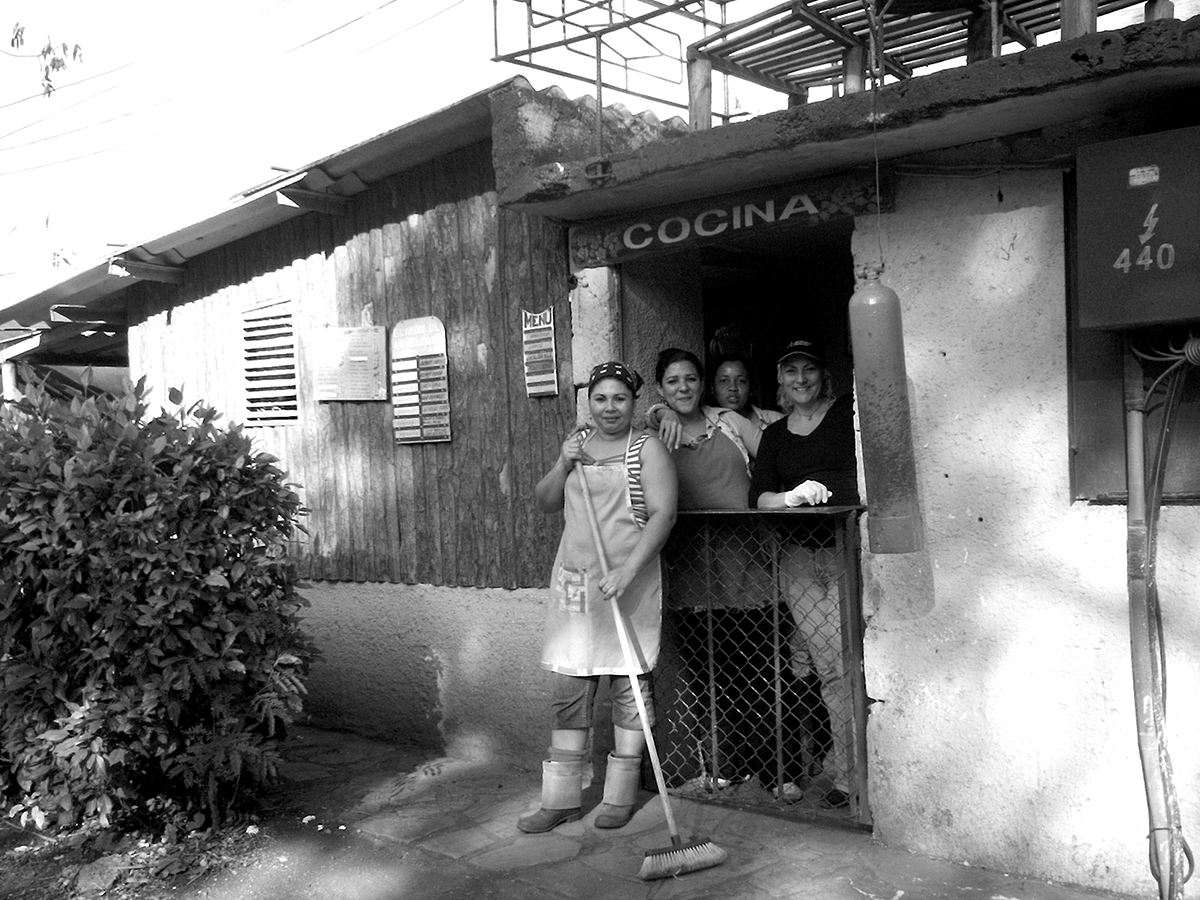
by Christina Ergas, PhD candidate, Department of Sociology
As a strategy to increase international food security, the U.S. Department of State Diplomacy Global Food Security Coalition (2009) calls on harnessing “the power of women to drive economic growth.” This framing fails to recognize the work that many women already do every day to ensure food security for their families. Worldwide, women make up the majority of urban agricultural workers. Many of them do this work as a subsistence strategy to supplement household income; thus, a large proportion of this work is unremunerated and economically unacknowledged (United Nations Development Programme 1996).
While Cuban women are not the majority of urban agricultural workers, Cuban cultural traditions position women in supportive roles that subsidize urban agricultural practices. In particular, women take their children to and from school and prepare meals before and after work. Harnessing “the power of women” in any of these cases may prove to cause undue burden on women worldwide and, specifically, on Cuban women who already experience long hours from paid labor and their “second shifts.” The “second shift” is a term that Hochschild and Machung (1990) used to denote reproductive household work done before and after women’s work in the paid labor force. Rather than focusing on extending women’s workload, policy on food security should work toward acknowledging and facilitating women’s urban agricultural labor by partnering with them to assess their needs. Such needs may include access to resources, property rights, continuing education, and pay.
In my dissertation research I focus on examining the relationship between gender and the environment, exploring specifically the gendered nature of the development of urban agriculture in Havana, Cuba, and its ecological implications. For this research I draw on the work of feminist theorists of environmental sociology, who argue that women’s concern for the environment is not based on essential or “natural” female characteristics, but is likely based on social conditions that influence gender roles and work. Prior research has demonstrated that women generally have different concerns regarding environmental degradation and are more active with regards to struggling for better environmental protections than men. This research also suggests that cultural norms designate gendered work, potentially positioning women as unpaid or underpaid domestic laborers or subsistence food producers and men as paid laborers, which in turn shapes gendered perspectives on the environment. For example, in regions where women work as gatherers of fuel wood, they may notice the effects of deforestation more readily. Similarly, in regions where men work in mines and rely on pay from a mining company, they may choose to ignore the company’s environmental negligence. Hence, my research aims to investigate the gendered differences in urban agricultural work in Cuba, so as to explore the particularities of these differences that emerge in a specific context.
Literature that focuses on urban agriculture in Cuba neglects the role of women in these spaces, further entrenching the invisibility of their labor. Thus, my contribution is to center women’s work in my analysis of urban agriculture in Havana. The questions I seek to answer include: What cultural constraints or expectations around gendered work keep women from working in urban agriculture in Havana? What work do women do that goes unacknowledged? How do women understand their natural environment? In these spaces, where women continue to be marginalized, we can learn more about the specific mechanisms that keep women from participating in paid work. Moreover, we can reveal the ways in which women’s work and contributions to urban agriculture are continuously made invisible.
My research involved interviewing, working with, and observing women scientists and farm workers at one urban farm site in Havana. Also, I interviewed and observed women from a governmental organization, Organic Farming Group of the Cuban Association of Agriculture and Forestry Technicians, and one nongovernmental organization, the Antonio Núñez Jiménez Foundation for Nature and Humanity. These organizations work specifically to further sustainable development projects, particularly in agriculture.
I received a research license through the U.S. Treasury’s Office of Foreign Assets Control and was sponsored by my Cuban contacts who helped me set up interviews. On my first trip to Cuba in June 2010 I conducted several initial interviews. I completed my fieldwork in winter 2011 when I returned to Cuba to conduct additional interviews and record observations.
—Christina Ergas received a 2010 CSWS Graduate Student Research Award to support this work. She recently published a coauthored manuscript titled “Women’s Status and Carbon Dioxide Emissions” in Social Science Research that was also featured as a research highlight in Nature Climate Change. The research looked at cross-national data and found a relationship suggesting that nations with higher women’s status tend to have lower CO2 emissions. She is currently completing her dissertation, which she expects to defend in 2013.

